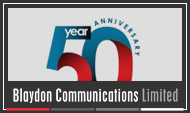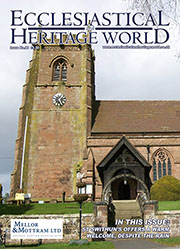Alternative choices for music accompaniment in today’s church
Many churches are finding it increasingly difficult to obtain the services of competent, reliable musicians to accompany congregational singing, yet for a huge number of church denominations communal singing forms an ongoing, popular and significant part of their service format. Anyone who has been to a service where the congregation hesitantly sings unaccompanied will be aware of the importance of a good musical accompaniment.
In recent years new styles of contemporary worship music have achieved popularity. While it is true that some churches now only sing contemporary songs (often accompanied by a worship band), most choose a middle path, adding favourite modern songs to their traditional hymn repertoire. However, the musical skills and instrument(s) required to effectively accompany contemporary music are often quite different to those for traditional church music, thereby exacerbating the problem of finding suitably skilled musicians.
What factors are important?
In order to evaluate accompaniment options objectively, it is important first to understand the musical requirements specific to the successful accompaniment of congregational singing. Unlike the passive task of listening to music, several variables have to be right in order to promote enthusiastic, confident singing in church. For any given tune, the speed, pitch, number of verses – even the length of the pause between verses – will need to be as close as possible to how your congregation is accustomed (or wants) to sing it. An often overlooked fact is that each congregation develops their own “style” over time, so suddenly demanding they sing everything differently from now on is rarely successful!
What options are available?
Essentially there are three categories of product: audio recordings, midi files or a portable church music player unit. These are discussed below:
Audio recordings (audio CDs and mp3 files)
The use of audio recordings is nothing new. Poor-quality tape recordings of hymn tunes were a feature of many crematoria as far back as the 1960s. Although better than nothing, audio formats were (and still are) generally unable to offer the flexibility needed for effective accompaniment of congregational singing. Advances in digital recording techniques now afford a much better quality of sound, but the lack of key requirements as outlined above, coupled with the inherent clumsiness in manipulating multiple audio tracks during a church service, have prevented widespread popularity of the use of audio CDs and mp3 files.
Other problems associated with audio format recordings are lack of adequate repertoire, the often unwanted presence of the recorded local acoustic, and the inevitable performance preferences of the musicians involved, e.g. tempo, “artistic interpretation” of the words etc. In other words, the chances of an audio recording matching how a particular congregation usually sings that tune are slim.
Midi files
A purely digital recording format, the midi file, opened other avenues in the 1980s. Again however, many of the same drawbacks and inflexibility in playback as are associated with audio formats could not easily be overcome. Self-contained midi file players became available, as did collections of hymn tunes in various midi formats. For non-technically minded end users the difficulties of changing the number of verses and orchestration remained while,since midi file players were never designed for church use, they often didn’t have any usable pipe organ sounds for playing traditional hymn tunes and Christmas carols. Another fundamental in the lack of success of this format was, again, lack of sufficient repertoire to fully cover a typical church year.
Church music players
Various companies have attempted to provide a solution in the form of a dedicated midi-based player unit, pre-loaded with a fixed selection of hymn tune recordings, ever since the 1980s. Most were little more than a midi file player with some midi files built in, and all lacked flexibility. Although of some use to missionaries etc, the limited repertoire of tunes and poor sound quality of these early attempts meant they fell far short of providing an effective solution for a church.
Responding to this unsatisfactory situation, Hymn Technology Ltd took on the challenge of designing a completely new portable system, purpose-built for the accompaniment of congregational singing, which could successfully substitute in the absence of a good musician and/or instrument. The result, the ground-breaking Hymnal Plus, offers tremendous versatility coupled with unmatched ease of use and a huge, open-ended repertoire.
What’s different about the Hymnal Plus?
Ease of use
Operation of the Hymnal Plus is very intuitive using the large touch screen display, and users need no musical or technical knowledge. Essential variables such as speed, pitch, number of verses and length of pause between verses can all be altered with simple, dedicated + and – buttons, so playback can easily be adjusted to suit the congregation. The Playlist feature enables storage (and naming) of all the music for services in advance, for playback whenever required. Personal customisations (adjustments to speed, pitch etc) are all stored with each tune in a playlist, so button-pushing during a service is reduced to pressing the Start button at the appropriate times.
Other unique features include a hymn search facility and on-screen display of first line of words and tune name. An infra-red remote control handset is included for added accessibility.
Repertoire
Pre-loaded with a broad-based repertoire of at least 2,750 tunes*, both traditional and contemporary (including a collection of popular incidental music and music for weddings and funerals), the Hymnal Plusis easily upgradeable over time and owners are able to purchase additional repertoire as needed.
* Actual number varies by region
Sound quality
The Hymnal Plus enables the user to choose the orchestration for any particular choice of tune. The internal sound engine has been custom designed specifically for church use, offering a stunning range of realistic pipe and electronic organs and orchestral voices. Over 200 preset orchestrations make sound selection child’s play. A drum rhythm backing can also be added to any orchestration when appropriate.
Flexibility
For complete convenience the Hymnal Plus also plays user-supplied midi and mp3 files, which are stored on its compact flash memory card. These files can also be included as items in playlists.
Options
Optional features include:
- Video output for lyrics and text display via projector or TV monitor (with auto-advance of lyrics)
- Qwerty keyboard for direct text entry
- Soft carry case
- Rechargeable NiMH battery pack
- Psalm Player, for interactive accompaniment of psalms etc
















